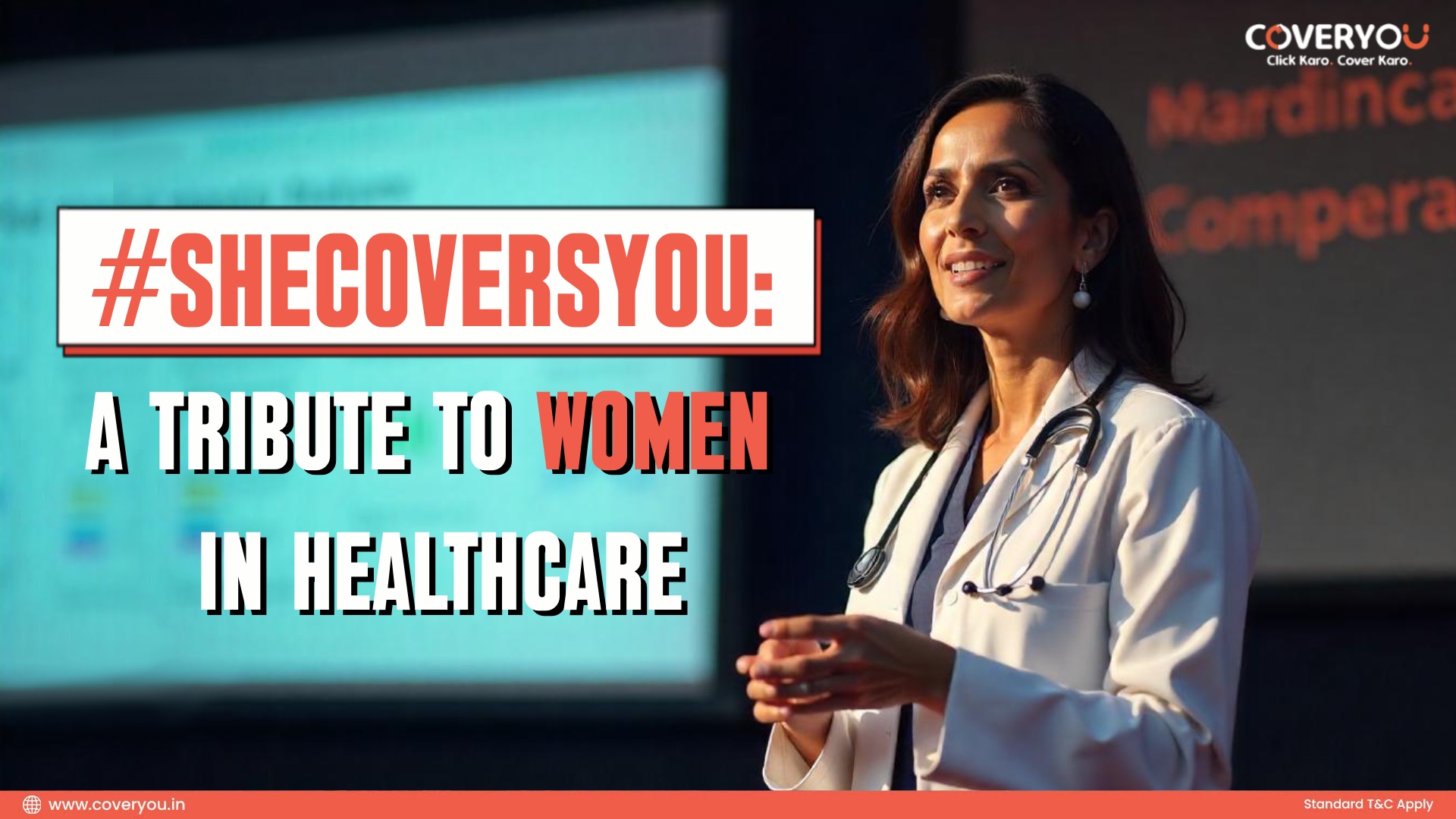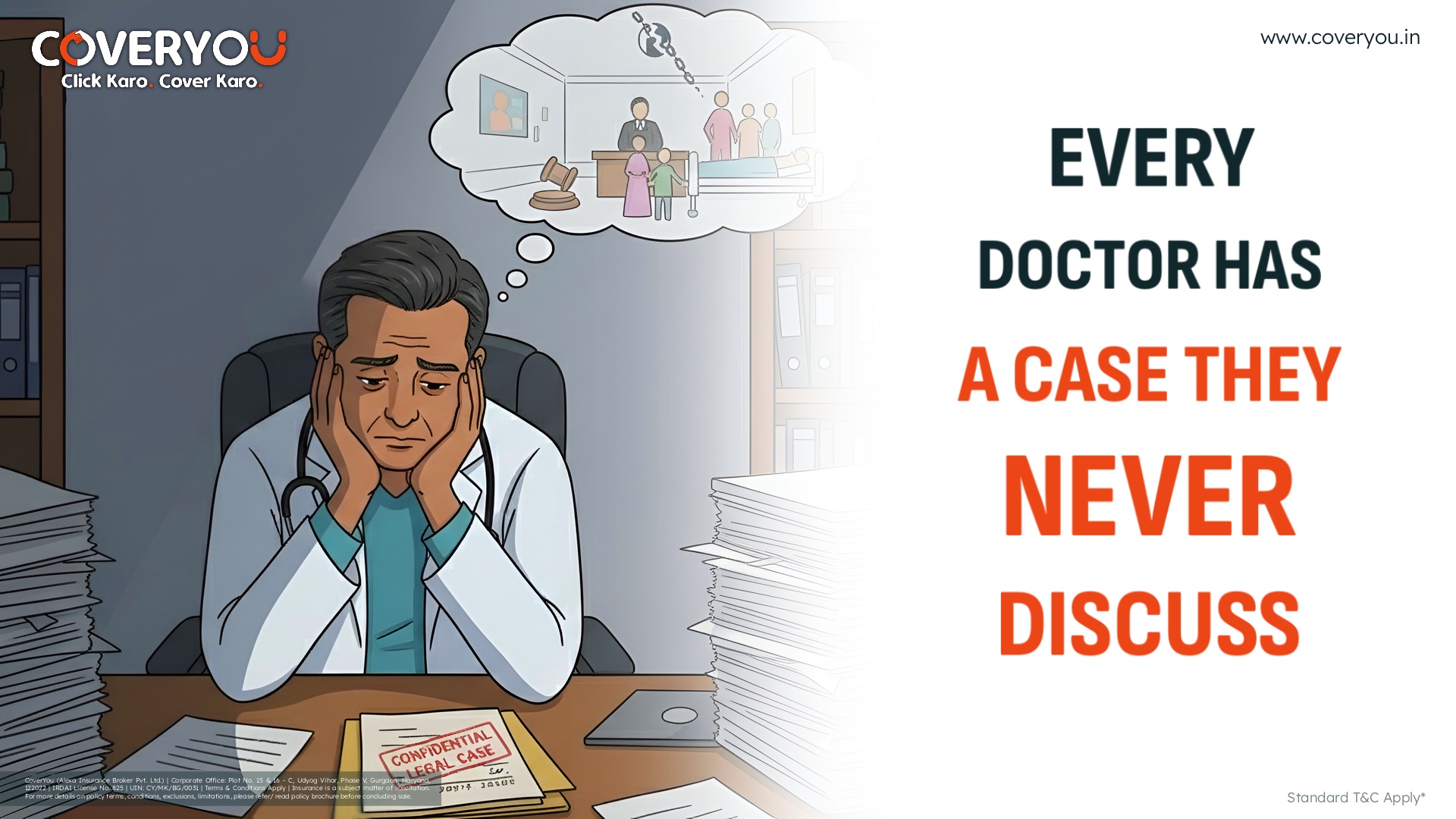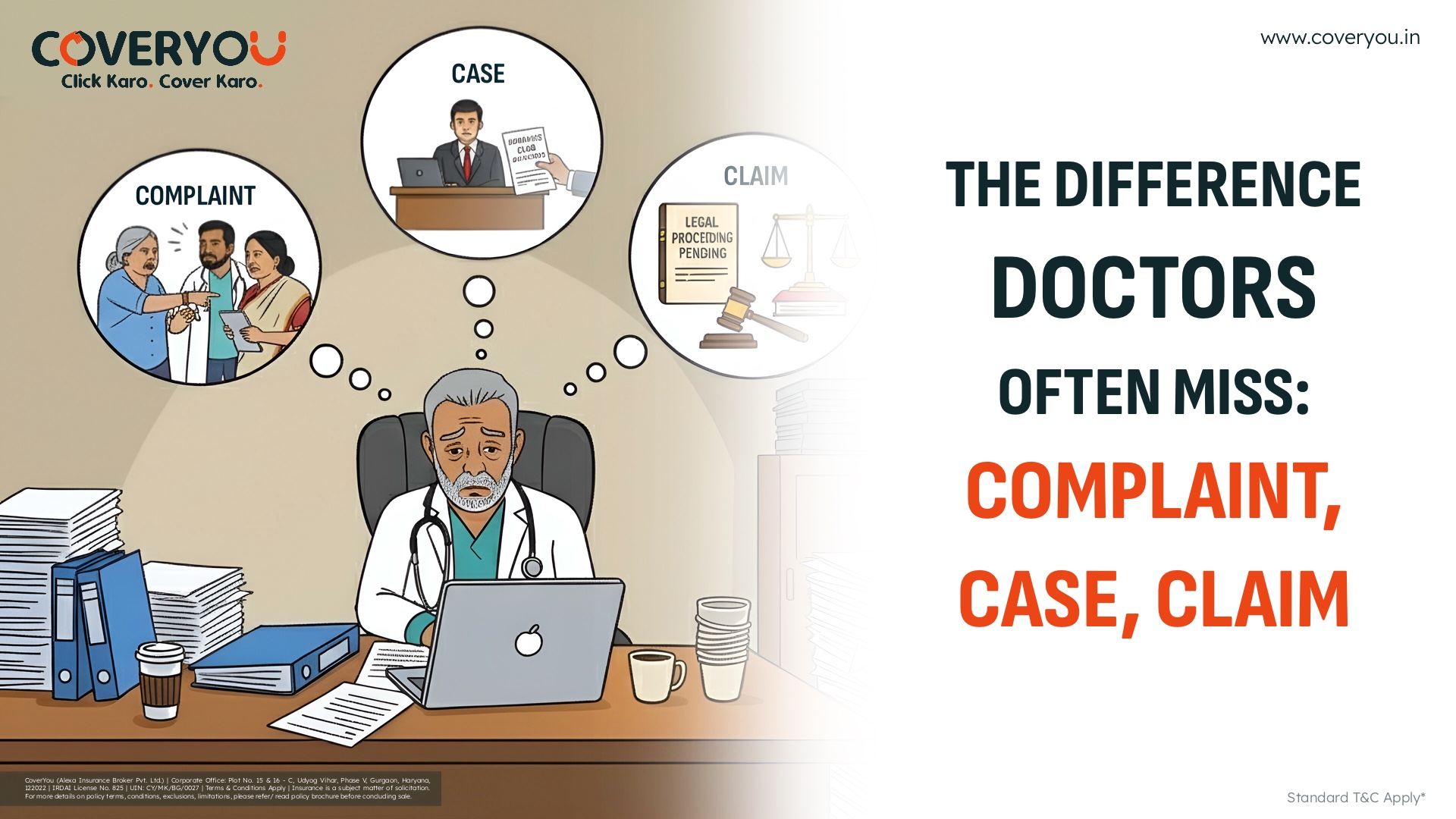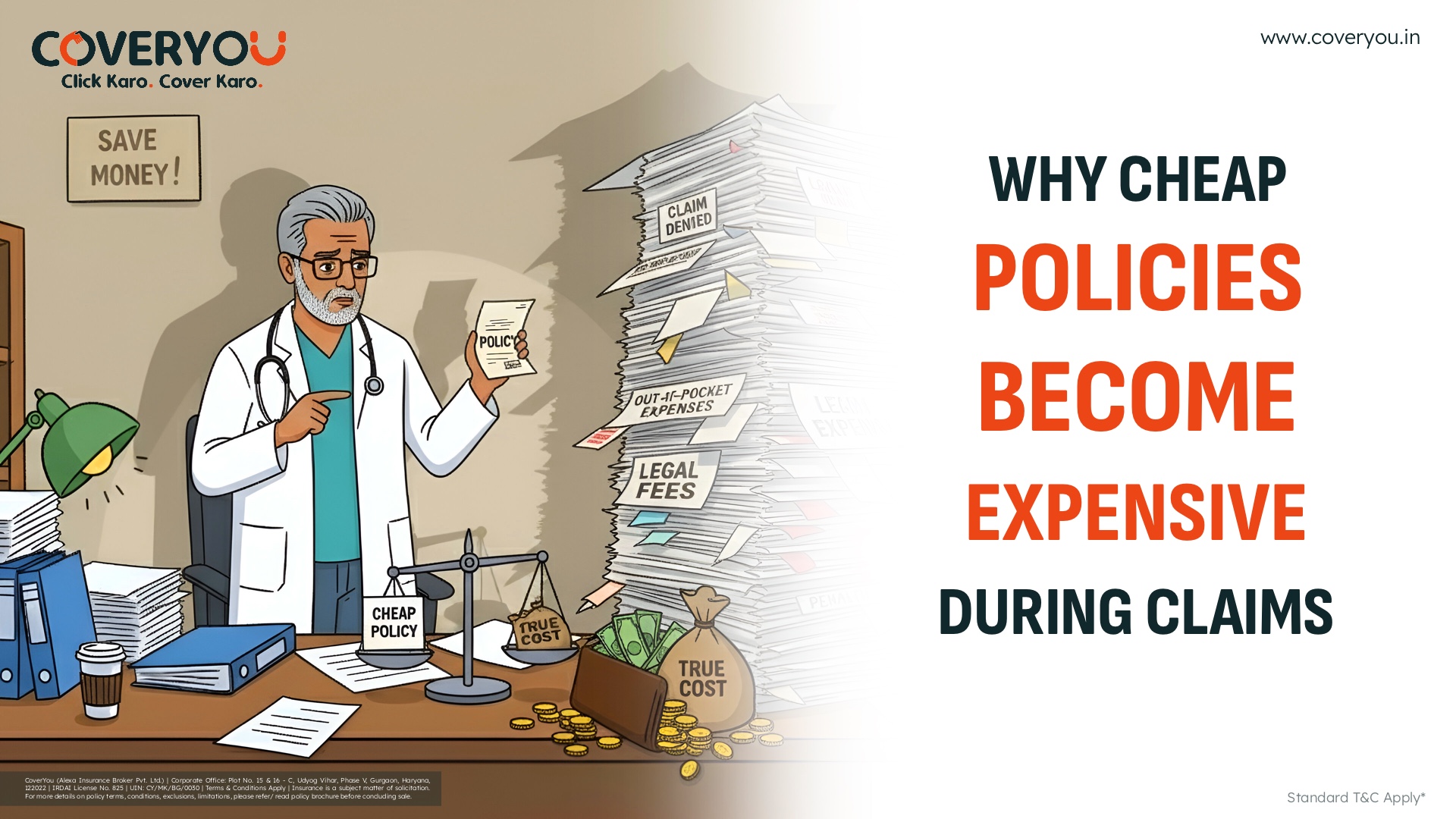This Women’s Day, CoverYou celebrates the indomitable spirit of female healthcare professionals who balance compassion, resilience, and expertise while navigating a challenging and often biased system. The #SheCoversYou campaign is dedicated to highlighting the struggles, burnout, and disparities faced by women doctors and ensuring they receive the legal and professional protection they deserve.
Women Doctors Balancing Work and Family with Strength
Women have made remarkable strides in the medical field, accounting for a growing share of India’s healthcare workforce. However, the expectation to excel in both their profession and family roles places immense pressure on them.
A comprehensive review by Global Advances in Integrative Medicine and Health found that female doctors experience higher rates of burnout, stress, and work-family conflicts compared to their male counterparts. The study highlighted that over 25% of women in healthcare feel they have limited autonomy at work, which accelerates burnout rates (Global Advances in Integrative Medicine and Health, 2023).
Balancing Career and Family: A Constant Struggle
Women doctors often face unique challenges that affect their family lives, such as:
- Expectations to manage household duties and caregiving roles alongside demanding medical careers.
- Work-family conflict (WFC), where professional responsibilities interfere with personal obligations.
- Higher dropout rates due to societal pressures, marriage, and motherhood.
- Limited institutional support for maternity leave, flexible hours, or childcare facilities.
Many hospitals and clinics lack structured policies to accommodate the dual responsibilities of female healthcare professionals. Reducing work hours, implementing flexible schedules, and offering part-time options can help bridge the gender gap in medical careers.
Gender Disparities in Leadership and Pay
Underrepresentation in Leadership
Despite making up nearly 50% of India’s healthcare workforce, women are severely underrepresented in leadership roles. Studies reveal that:
- Only 18% of healthcare leadership positions are held by women in India.
- Women occupy less than 30% of senior roles in private hospitals and only 5-10% in pharmaceutical companies.
- Only 17% of hospital board members are women (ILO & WHO, 2023).
Barriers to leadership include institutional biases in promotions, lack of mentorship opportunities, and stereotypes that question a woman’s ability to lead while balancing personal responsibilities.
The Gender Pay Gap: Doing More, Earning Less
Women in healthcare earn 24% less than their male counterparts despite having the same qualifications and experience, according to a joint study by ILO and WHO.
A major reason for this disparity:
- Women doctors often take on more unpaid responsibilities such as mentorship, community healthcare, and patient education, which are undervalued in monetary terms.
- Implicit biases lead to women being offered fewer high-paying specialties like surgery and cardiology.
- Maternity penalties—mothers in medicine often face career stagnation, fewer promotions, and lower salaries.
Workplace Discrimination and Harassment
Women doctors face not only professional roadblocks but also workplace discrimination and harassment. Studies indicate that implicit gender bias is a major source of mental distress among female healthcare professionals.
Common discriminatory practices include:
- Not addressing female doctors by their professional title in hospital settings.
- Sexual harassment and unsafe working conditions, especially during night shifts.
- Unfair treatment in patient interactions, where male doctors are often prioritized over their female counterparts.
- Higher expectations placed on women to handle both emotional and clinical aspects of care.
Many institutions have legal frameworks to address gender discrimination, yet enforcement remains weak. Stronger policies, zero-tolerance harassment laws, and safe reporting mechanisms must be implemented to create a truly inclusive and equal workplace.
Burnout, Stress, and Mental Health Concerns
Women doctors experience twice the levels of burnout compared to men.
The medical profession is already demanding, but female doctors experience additional stressors that worsen their well-being:
- Long working hours with fewer breaks.
- Emotional exhaustion from handling both patient care and administrative work.
- Higher expectations in caregiving roles within the family.
- Lack of mental health support or counseling facilities at workplaces (Global Advances in Integrative Medicine and Health, 2023).
Several studies suggest that incorporating wellness programs, mindfulness practices, and institutional support for work-life balance can significantly reduce stress and burnout among women doctors.
The Way Forward: Investing in Women, Accelerating Progress
To address these disparities and challenges, the healthcare sector must implement gender-sensitive interventions that promote inclusivity, fairness, and better mental well-being.
Key recommendations include:
- Flexible work arrangements—reduced work hours, hybrid models, and parental leave policies.
- Mentorship and leadership training to help women advance in their careers.
- Equal pay reforms to eliminate gender wage gaps.
- Stronger workplace harassment policies with strict enforcement.
- Mental health support and stress management programs.
Women doctors protect lives every day—it’s time we protect them too.
#SheCoversYou: Empowering Women in Healthcare
At CoverYou, we understand the unique risks that women doctors face. Whether it’s legal battles, workplace challenges, or discrimination, you shouldn’t have to fight alone. That’s why we offer Professional Indemnity Insurance designed exclusively for women in healthcare.
- Legal coverage against medico-legal cases.
- Fast, hassle-free settlements & legal aid.
- Affordable, comprehensive coverage tailored for doctors.
- And much more!
Conclusion
Women in healthcare continue to break barriers despite facing discrimination, burnout, and systemic biases. While they dedicate their lives to protecting and healing others, it’s time they receive the recognition, support, and legal protection they rightfully deserve.
This Women’s Day 2025, let’s celebrate the resilience and contribution of female doctors, ensuring they have the opportunities, respect, and security they need to thrive.
Let’s stand with them. Let’s support them. Let’s cover them.
















